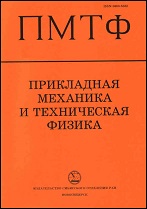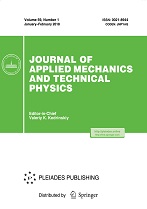|
Technologically varied reservoir permeability during nonisothermal oil – gas – paraffin filtering in the case of phase transitions
L. A. Gaidukova, A. V. Novikovb
a Oil and Gas Research Institute RAS (OGRI RAS), 119333, Moscow, Russia
b Gubkin Russian State University of Oil and Gas, 119333, Moscow, Russia
Abstract:
Changes in temperature and pressure conditions during the development of an oil reservoir with a high paraffin content in a limiting saturated state causes an in-situ phase transition to a solid state, and the filtering of a mixture of oil with solid paraffin particles at a temperature below the flocculation temperature causes clogging in the pore space of the reservoir in narrow places and bottle necks of pores. Thus, laboratory studies are carried out to determine the critical points and parameters of an oil – gas – paraffin mixture under various thermobaric conditions. A mathematical model is developed that describes wax deposition in the pore space of a low-temperature oil reservoir and makes it possible to calculate its permeability during development. The model parameters are adapted to their experimental values. Numerical calculations are used to determine the values of the main parameters that affect the reservoir permeability.
Keywords:
filtration, permeability, wax, oil reservoir, pore space, mathematical model, phase transition.
Received: 09.06.2020
Revised: 14.08.2020
Accepted: 31.08.2020
Citation:
L. A. Gaidukov, A. V. Novikov, “Technologically varied reservoir permeability during nonisothermal oil – gas – paraffin filtering in the case of phase transitions”, Prikl. Mekh. Tekh. Fiz., 62:6 (2021), 64–73; J. Appl. Mech. Tech. Phys., 62:6 (2021), 943–951
Linking options:
https://www.mathnet.ru/eng/pmtf72 https://www.mathnet.ru/eng/pmtf/v62/i6/p64
|


| Statistics & downloads: |
| Abstract page: | 56 | | References: | 16 | | First page: | 8 |
|





 Contact us:
Contact us: Terms of Use
Terms of Use
 Registration to the website
Registration to the website Logotypes
Logotypes









 Citation in format
Citation in format 